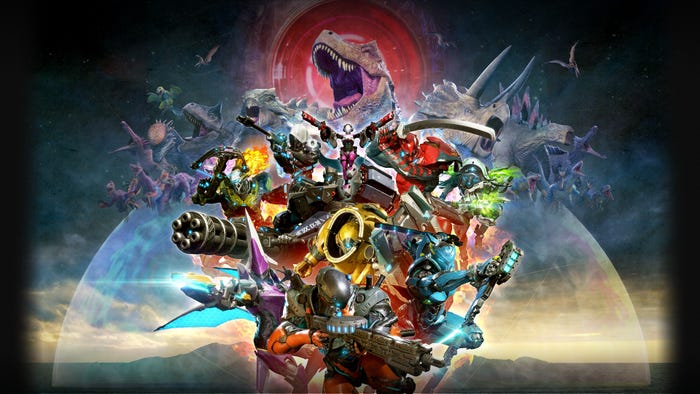
Featured Blog | This community-written post highlights the best of what the game industry has to offer. Read more like it on the Game Developer Blogs.
How We Chose Our Sound Designer
It took us a long time to find the right sound designer. I saw a lot a great submissions, and some that were lacking. I hope sharing our experience will help both sound designers looking for work, and developers looking to hire.

Corey Warning works at Jumpdrive Studios, and indie game company in Portland. They're currently working on their first game, XO - where you command a ragtag fleet of starships to escape an unbeatable enemy and save what's left of humanity.
--------------
Disclaimer: I don't consider myself to be an expert on hiring, or in sound design. We spent a lot of time looking for the right people to work with, and we hope sharing our experience will be helpful to those looking for work, as well as developers looking to hire.
While searching for the right sound designer, we asked several interested parties to submit examples of their work and posted a lot of requests around the internet. I think all of us at the studio were surprised at the amount of replies we received. It's by far the most common message we get from people who want to help us make XO. After posting the RFP, I was getting up to five e-mails a day from composers and sound designers looking for work.
Since most of these emails didn't mention anything about XO or even how they found out about our game, I got the sense that the bulk of the replies were copy-pasted – these days, those typically don't get a second look from me. I want to see something that shows me that the submitter took the time to explore our project... something that explains why they think they're a good fit, and at least one sentence that demonstrates passion about working with us, because we're very passionate about this game!
Surprisingly, half of the inquiries didn't include links to previous work (a requirement I included in the RFP) or simply linked to a messy Dropbox of random WAVs – which took a lot of time to sort through. That, my friends, is time we don't have. I still tried to listen to everything I received, but over time, unorganized responses went straight into the trash.
More evidence that not everyone was reading the request in full: half of the e-mails were from composers who admitted to having no experience creating sound effects. Another point I had clearly stated... we weren't looking for composers; here's a blurb from our RFP:
You must be able to provide examples of your previous work, and we are not looking for any music – composers, we love you, but please look elsewhere!
Sure, taking a long-shot occasionally pays off, but in this case all that was accomplished was to make those composers look unprofessional.
We also struggled with getting proper bids. It's cool to be flexible on your pricing and to want to talk with a team before providing a bid, but it's much more helpful if you have a pricing sheet prepared ahead of time. We're a small studio working on our first game, and we can't write a blank check for any kind of work. I thought it was really helpful to know how much we'd be paying per sound – which seems like a pretty common trend. We heard budgets ranging from dangerously cheap, to premium AAA pricing. It was really helpful to be able to say, “we think we need 73 handmade effects” and get a flat rate based on that.
So what should you do if you don't have much work to show off? In my opinion, offer to do a sound replacement video – for free. Worst case, you have something you can show next time around.
We have a policy of not asking anyone to do work for free (that's a topic for another post). However, it's different if the artist volunteers to do work without our asking. If you're a new sound designer without much work experience, this is an amazing way of proving you've got chops. In fact, this is what finalized our decision on who to hire for XO!
One team offered to do a test replacement if we could send them over some in-game footage. Luckily, we happened to have gameplay video on hand from submitting XO to a few expos. All of us were impressed by their confidence and willingness to take a risk. They said they'd have something to show me in about a week, and sure enough they delivered on time, so they proved their ability to work on a timeline as well. All of this, and at a price we could work with. They basically made it impossible to say no.
To summarize: always follow up on potential opportunities, carefully read requests, and be ready to show that you're capable of the job if you don't have previous experience in-hand. There are tons of people looking for audio work in games right now, and if you want to break into the industry, be ready to go the extra mile. It will pay off in the end.
If you've had a similar experience with hiring or finding work, we'd love to hear your story!
Read more about:
Featured BlogsAbout the Author(s)
You May Also Like













